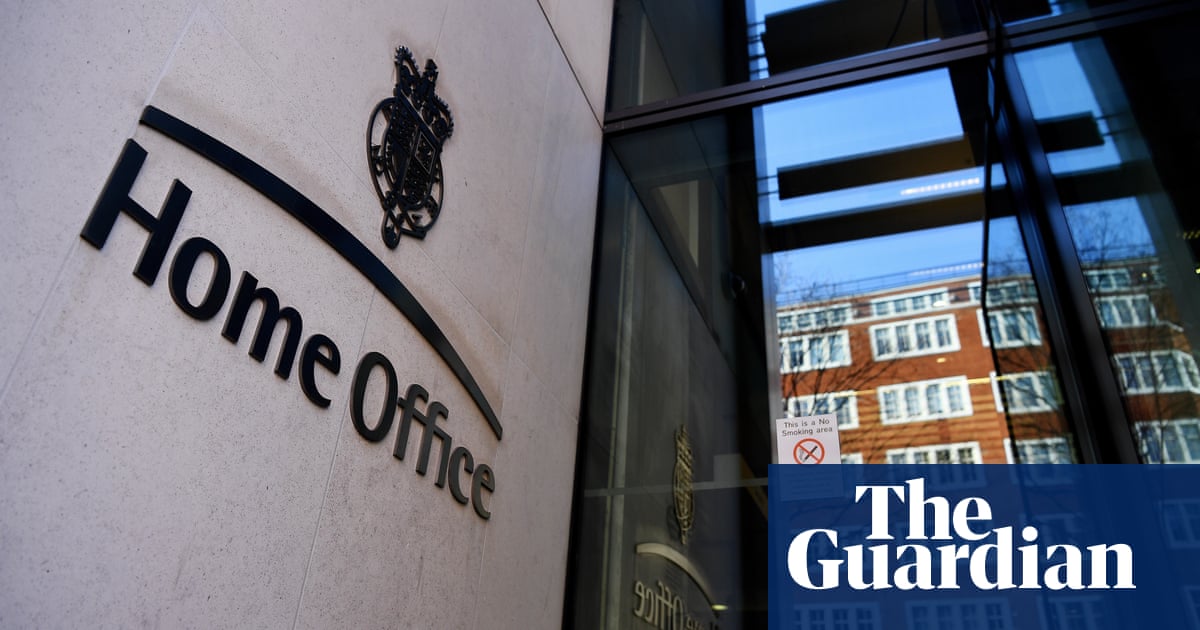
Amnesty International has called for the abolition of the government’s counter-extremism strategy Prevent, accusing it of severe human rights abuses and of encouraging a culture of “thought policing”.
A report by the group said Prevent’s legal duty on public sector workers, such as in schools and health, to report their suspicions was “fundamentally incompatible” with international human rights obligations.
Amnesty said the legal duty led to breaches of the right to freedom of expression, freedom of thought, conscience and religion, freedom of peaceful assembly, and the right to equality and non-discrimination.
The report is a blistering attack on the Prevent programme, which security officials see as one of the most important ways to stem the flow of recruits to Islamist and, increasingly, extreme rightwing terrorism.
The Guardian has learned that official estimates, which have never been made public, are that since 2015 3,800 people have been turned away from a path to terrorism.
But even some security officials have feared Prevent’s mission has become confused, sometimes under political pressure, and moved towards trying to capture those with unpopular extremist views who are not committing a crime.
Amnesty highlights official guidance that recommends people use their “gut feeling” before reporting concerns.
“The Prevent strategy rests on the idea that there is a causal relationship between undefined ‘extremist’ views and ideas, which may be espoused by lawful non-violent groups, and ‘terrorism’,” the report said. “But the alleged link between the two is not clearly articulated, nor is it clear where legality ends and potential criminality begins.”
It added: “The breadth of discretion permitted in Prevent decision-making has resulted in a significant risk of discrimination. Islamophobic stereotypes associating Muslims with extremism or terrorism have played a major role in referrals to Prevent. A disproportionate number of neurodiverse people and children also feature in Prevent referrals.”
The report, called This is the Thought Police, said: “Amnesty International spoke to people who were referred to Prevent largely because they expressed non-violent political beliefs, including one person whose employer referred them to Prevent for their leftwing social media posts.
“People were often not told why they had been referred to Prevent, or what the outcome of their referral was. Such secrecy and lack of clarity is difficult to justify in what purports to be a voluntary pre-crime programme.”
Amnesty said that 87% of Prevent referrals do not “meet the criteria for intervention”, suggesting too many people are caught up in the programme, with one in three referrals being for children under 15.
In 2021/22 more people were referred for alleged extreme rightwing views (1,309 people), than Islamist views (1,027 people), with the ideology in most other cases being unclear.
Cases cited by Amnesty include Irfan, a teacher in the north of England who was referred to Prevent after complaining about Islamophobic harassment at school, including jibes about his beard and being called a “terrorist”.
Another was that of 11-year-old Zain, who was referred by his school in northern England. During a fire drill, he said he hoped the school “burned down”. Later a student claimed that Zain said he wanted to “blow up the school” with the “teachers inside it”. Zain had told the school the comment was a “joke” because he was “stressed with the homework” and school rules.
His mother, Jasmine, told the report: “She [the teacher] looked at my son, saw a brown Muslim boy, and she made the Prevent referral not based on evidence but based on her own bias. The referral had a detrimental impact on the family.”
It also cites the case of Michael, 14, reported for writing God is great in Arabic, sharing pictures of guns, soldiers, and anti-abortion material with another student, and talking to a rabbi about converting to Judaism. It led to a police visit to his home.
One senior teacher admitted to researchers that if in doubt, they would refer a child to Prevent, to avoid getting in trouble.
Sacha Deshmukh, Amnesty International UK’s chief executive, said: “The dragnet approach inevitably sweeps up innocent people and can destroy their lives and futures.”
The Home Office said Prevent was crucial to stem the flow of potential terrorist recruits and that the programme was being copied by other countries: “Prevent is a vital safety net against the threat posed by terrorism. Encouraging disengagement with the programme undermines its ability to reach at-risk individuals – and is irresponsible and dangerous.”
A spokesperson added that the government fears that scrapping Prevent would severely weaken the fight against terrorism and that while the Prevent duty should not be used to suppress freedom of speech, harassment and inciting violence or terrorism was wrong.










